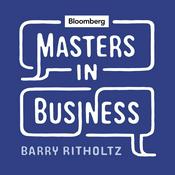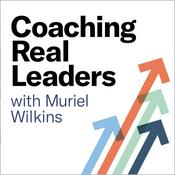HBR On Strategy
Harvard Business Review

Nieuwste aflevering
117 afleveringen
- For the last two years, HBR On Strategy has been a collection of the best conversations and case studies with the world’s top business and management experts, to help you unlock new ways of doing business. But the time has come for HBR On Strategy to hit pause on new episodes. We think that you deserve the highest-possible quality HBR content. And to do that, we’re going to focus our efforts for now on our sister feed, HBR On Leadership. But don’t worry—you can still enjoy the archive of episodes. Plus you can find brand new episodes of HBR IdeaCast, HBR’s Women at Work, Cold Call, and Coaching Real Leaders wherever you listen to podcasts. In the meantime, we hope you’ll subscribe to our sister podcast, HBR On Leadership, which will continue dropping new episodes every week. Thank you for joining us each week. See you next time.
- The rapid pace of technological change is making a big impact on hiring. Some organizations are dynamically securing freelance workers through platform apps like Upwork and Freelancer. Other companies are investing heavily in work enabled by artificial intelligence. John Winsor and Jin Paik say these structural changes call for a reimagining of your talent strategy—one that is open to flexible, project-based work for talent inside or outside your organization—and they explain how to go about it. Winsor is the founder and chair of Open Assembly and an executive-in-residence at the Laboratory for Innovation Science at Harvard. Paik is a cofounder and managing partner at the AI consultancy Altruistic and a visiting research scientist at Harvard Business School. Together, they wrote the book Open Talent: Leveraging the Global Workforce to Solve Your Biggest Challenges and the HBR article “Do You Need an External Talent Cloud?“
- Most businesses are built on a linear model: take, make, and discard. But that norm is reaching its limits, and leaders are under pressure to find smarter, more sustainable ways to operate. Weslynne Ashton is a systems scientist and professor at the Illinois Institute of Technology. In her masterclass at HBR’s 2024 Leaders Who Make a Difference conference, she explains how companies can shift to a circular economic strategy. One that reduces waste, reinvests in communities, and creates long-term value. She shares how businesses around the world are rethinking products, partnerships, and growth itself to build more resilient, regenerative business models.
- When Ferrari, the Italian luxury sports car manufacturer, committed to achieving carbon neutrality and to electrifying a large part of its car fleet, investors and employees applauded the new strategy. But among the company’s suppliers, the reaction was mixed. Many were nervous about how this shift would affect their bottom lines. Harvard Business School professor Raffaella Sadun and Ferrari CEO Benedetto Vigna discuss how Ferrari collaborated with suppliers to work toward achieving the company’s goal. They also explore how sustainability can be a catalyst for innovation in the case, “Ferrari: Shifting to Carbon Neutrality.”
- While many teams and organizations engage in scenario planning, most don’t go far enough. Arjan Singh, consultant and adjunct professor at Southern Methodist University, says a more disciplined approach, borrowed from the military, can help leaders truly test how their strategies, operations, and tactics hold up against competitors, shifting market dynamics, and unexpected events. He’s helped hundreds of companies identify risks and find new ways to innovate by leading them through corporate war games, and he explains his process and results. Singh is the author of the book Competitive Success: Building Winning Strategies with Corporate War Games.
Meer Zaken en persoonlijke financiën podcasts
Trending Zaken en persoonlijke financiën -podcasts
Over HBR On Strategy
Business strategy isn’t just a plan, it’s a framework for success.
Whether you’re building, innovating, or executing, HBR On Strategy is your destination for insights and inspiration from the world’s top experts on business strategy and innovation.
Every Wednesday, the editors at the Harvard Business Review hand-picked case studies and conversations from across HBR podcasts, videos, articles, and beyond to help you unlock new ways of doing business.
Podcast websiteLuister naar HBR On Strategy, Het Grote Plaatje en vele andere podcasts van over de hele wereld met de radio.net-app

Ontvang de gratis radio.net app
- Zenders en podcasts om te bookmarken
- Streamen via Wi-Fi of Bluetooth
- Ondersteunt Carplay & Android Auto
- Veel andere app-functies
Ontvang de gratis radio.net app
- Zenders en podcasts om te bookmarken
- Streamen via Wi-Fi of Bluetooth
- Ondersteunt Carplay & Android Auto
- Veel andere app-functies


HBR On Strategy
Scan de code,
download de app,
luisteren.
download de app,
luisteren.



































